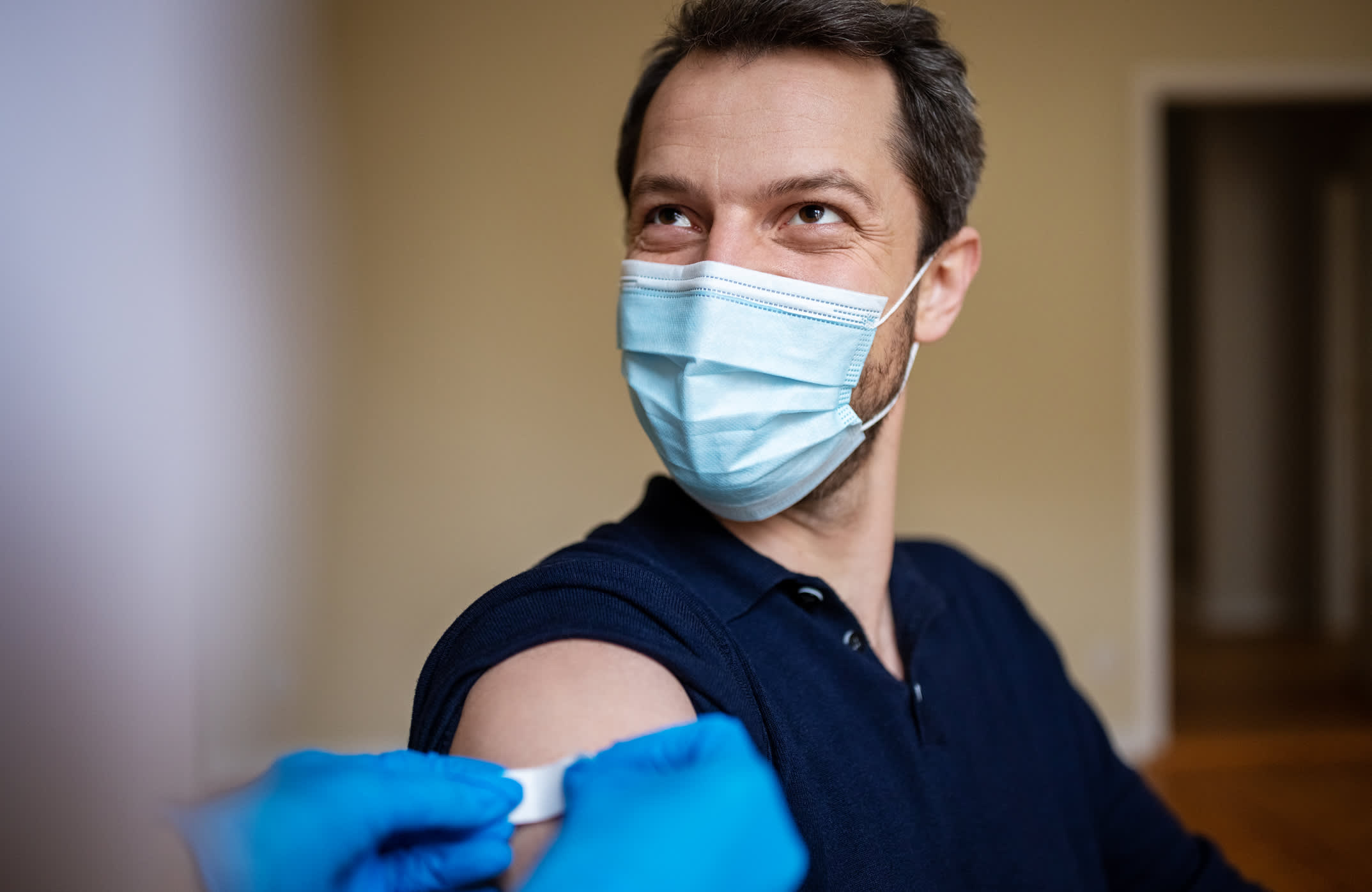
Finally getting your Covid vaccine may feel like a relief and the first step toward going back to pre-pandemic life — but the hard truth is that it's not an excuse to let your guard down just yet.
In fact, experts say that we're at a watershed moment in the pandemic.
CDC director Dr. Rachelle Walensky said that the U.S. is facing "impending doom" due to a rise in cases and hospitalizations, during a press briefing Tuesday, even as vaccination eligibility is expanding. (To date, about 30% of the U.S. population has received at least one dose of a Covid vaccine, according to the Centers for Disease Control.)
So while the says it's OK for fully vaccinated people to hang out with other vaccinated people indoors without a mask and even for fully vaccinated people to get together maskless with people from another household who haven't been vaccinated (so long as they're not at an increased risk of severe illness or death), many safety measures are still as important as ever.
Even for those who are vaccinated, avoiding medium or large-sized gatherings, delaying travel, wearing a mask and maintaining social distance when in public are a must, according to experts.
Here's why risks still remain even after you've been vaccinated:
You don't have full immunity right away
After you get a vaccine shot, it takes your immune system a few weeks to build up protection against the virus.
Since Moderna and Pfizer's Covid vaccines require two doses, you only get partial immunity about two weeks after the first dose, and you get further immunity two weeks after the second dose.
In clinical trials, J&J's single dose vaccine showed protection against Covid-related hospitalization and death starting 28 days after vaccination.
That's why you are not considered "fully vaccinated" for Covid until two weeks after receiving the second dose of a two-dose vaccine or two weeks after getting the single-dose J&J vaccine, according to the CDC.
Currently, 16% of the U.S. population is fully vaccinated, according to the CDC.
Even when fully vaccinated, you could still get Covid and spread it to others
As with any vaccine, it's possible that even people who have received both doses of the vaccine could get infected with Covid, which is referred to as a "breakthrough case."
For instance, in Washington state, public health officials reported 102 breakthrough cases since Feb. 1, which is about .01% of vaccinated people in the state. In February, four people in Oregon who got both doses of the vaccine tested positive for Covid/ Breakthrough cases have also been identified in South Carolina and Minnesota.
Typically, and in the cases listed above, people with breakthrough cases have milder symptoms if any.
There are also still questions about whether the Covid vaccines block transmission of the virus.
According to the CDC: "A growing body of evidence suggests that fully vaccinated people are less likely to have asymptomatic infection and potentially less likely to transmit SARS-CoV-2 to others. However, further investigation is ongoing."
A CDC study published Monday found that one dose of either Pfizer or Moderna's vaccines was 80% effective in preventing Covid infections, for instance.
But it is possible that someone who is vaccinated could have very mild symptoms, or potentially no symptoms at all, and still pass the virus to someone else.
Even mild cases fuel variants, which could lessen vaccine effectiveness and hinder herd immunity
Even if cases of Covid among those who are partially or fully vaccinated are more mild, any spread of the virus fuels the emergence of new variants with mutations, which is a problem for several reasons.
First, variants can be more infectious, and even more deadly.
Covid variants and relaxed social distancing measures appear to be fueling an "avoidable surge" of cases in the U.S., Walensky said March 24. The variant from the U.K., B.1.1.7, is more contagious and potentially deadlier than SARS-Cov-2. B.1.1.7 is becoming the dominant strain in the U.S., accounting for 26% of cases, Walensky said Wednesday.
In addition,early data suggests that the vaccines may work against some variants, but they could be less effective against others.
The bottom line: Stopping the spread of the virus by using protective measures is key to ensuring that more mutations do not occur.
Check out: Use this calculator to see exactly how much your third coronavirus stimulus check could be worth
https://ift.tt/3fFCSFt
Health
No comments:
Post a Comment